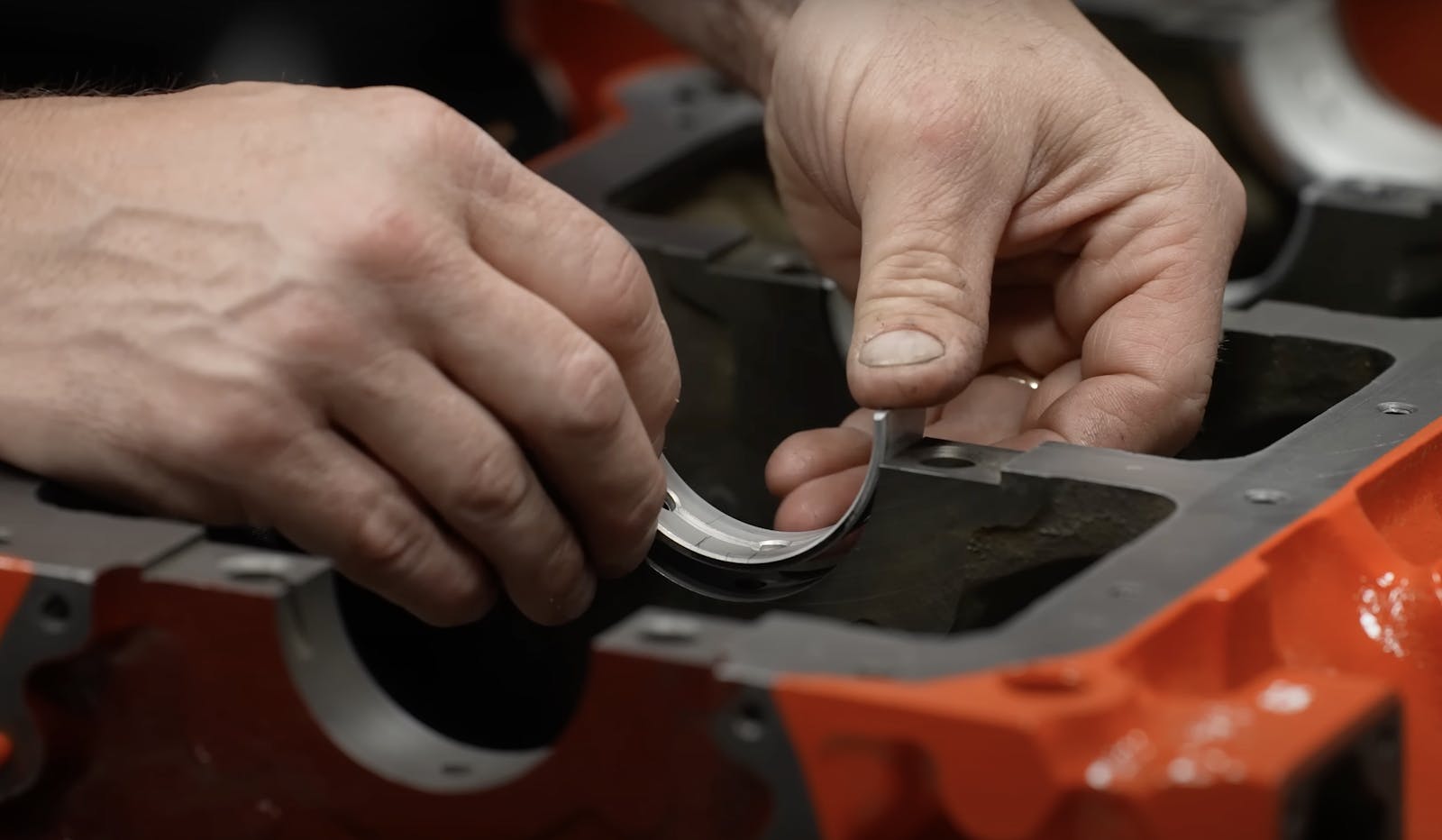How To Choose A Restoration Shop For Your Project
|
If you’re involved in the restoration hobby, sooner or later you’ll find yourself working with a pro shop. Even people who have done comprehensive restorations on their own will inevitably look to the pros for some help with a project. Very few, for example, can do their own chrome plating and engine machine work at home. And many people need more help than that. After all, automotive restoration calls for a variety of skills and a considerable array of specialized tools. No matter how much you want to do it all yourself, there are times when it’s just not feasible and you have to seek out professional help with certain tasks.
There’s no need for anxiety, however. Following the advice given here will level the playing field and put you on equal footing with the professionals. In the end, you should wind up with a fair and square deal for everyone involved.
Do the Research
The single best resource for finding competent, reliable restoration pros is “word of mouth.” If you belong to a car club, ask your fellow members for recommendations. If you don’t belong to a club, join one. Also, go to car shows and ask judges and show participants for recommendations.
When you’re searching for a shop, keep in mind that its experience with your particular type of car or truck may or may not be a relevant consideration. If you’re looking for a machine shop to do an engine rebuild, I would recommend sticking with someone who has experience with your model and vintage. On the other hand, if you’re having chrome plating, or even painting done, it’s usually not as important whether the shop has done a lot of cars similar to yours. So, if you’re at a show and see a Studebaker with beautiful chrome, speak to the owner about it no matter what make or vintage your car might be.
When someone recommends a shop, be sure to ask some probing questions about the business. Taking a few minutes to dig a little deeper at this point can save you lots of potential grief down the road.
After word of mouth recommendations have provided you with a short list of shops, visit each of them yourself if you can. By visiting, you can learn things about the shop you can’t learn over the phone, through the mail or from recommendations.
When you visit a shop, be certain to inspect the actual work area. Don’t be awed by all the pretty cars – look at the shop itself. Is it clean and well lit? I have known horrendously messy shops that did excellent work and meticulously clean shops that did horrible work. But, generally speaking, a neat, well-lit shop is more likely to do quality work than a dismal, filthy one.
|
Does the shop look organized? Are they using fender covers? Does each car in the shop have its own space and its own door to enter and exit the building or are the constantly jockeying cars around? And, while they’re moving the cars, are parts from one vehicle being placed on a shelf with parts from six other cars? If you bring your 289 engine to a machine shop and they happen to have four other 289s there at the same time, are they organized enough to make certain you get your block back or will the parts get mixed? If you go into a chrome shop, are there parts in various stages scattered all over the place haphazardly with no clear delineation between one person’s stuff and another’s?
How about the employees? Do they look like they have some experience under their belts? Watch them as they work. Are they enjoying what they’re doing or are they obviously miserable? Most of the time you can get a good idea how somebody feels about their work by watching them for just a couple of minutes. Now, anyone can have bad day, and some people look sullen when they’re not, but if you go into a restoration shop with 10 employees, and all 10 look like they hate the world and are ready to attack the boss, I think it says a lot about the quality of work those people are likely to produce.
Take notice of the equipment in the shop. Is it a machine shop without many machines? Is it a paint shop without all the necessary paint equipment? In other words, does the shop farm a lot of the work out to others or has the owner made the serious investment necessary to do the job himself?
Once you inspect the shop and its employees and equipment, it’s time to look at the cars. But don’t just look at the exotic or rare cars, look at all of them. Are there cars covered with dust being used as workbenches or storage shelves? Are the show-quality exotics given quality treatment while others are relegated to afterthought status?
Everything I’m talking about has to do with respect for automobiles, respect for automobile parts and, ultimately, respect for you, the owner of that car or those parts. I have noticed that shop owners and employees who don’t respect the cars and components they are trusted with usually do a lousy job.
When you speak with the owner of the shop, don’t be shy about asking questions. Many of the questions you need to ask do, in effect, question his ability and integrity. But that’s part of running a business and he should be used to it and should not take it personally. (See the list of potential questions below)
Time to Choose
After you have narrowed your choices and are ready to commit to a particular shop, do a brief background check to ascertain if that shop has a history of problems. This doesn’t take much time or effort and can save you a lot of heartache. Begin by calling the governmental agencies that regulate the business you are going to use. In many states, restoration shops fall under the regulatory jurisdiction of the state department of motor vehicles and the county department of consumer affairs. Most also are under the jurisdiction of the federal EPA and state and county environmental regulatory agencies as well. Simply call up the appropriate agencies and ask if there have been any problems with “so and so.” A complaint or two doesn’t necessarily mean you should eliminate the shop from your list. What you are looking for is a pattern of serious, unresolved problems or violations.
Another good indication of a business owner’s past behavior is his record of legal problems. Has he repeatedly been sued by his customers for breach of contract, fraud, stealing? Records of these types of legal proceedings are maintained in the county clerk’s office or the courthouse where the business is located. Records are available to the public and can be accessed using the name of the business and/or the name of the business owner.
A few hours of research can save you years of anguish if the person you were about to entrust with your car and half your life savings turns out to be a con artist. Alternatively, you’ll gain additional peace of mind if he has no problems with the government or the legal system.
|
Doing Business
A very important thing to remember when doing business with a restoration shop or subcontractor is to put your agreement in writing before any money changes hands and before any work begins.
Verbal contracts or agreements are essentially worthless if problems develop after work has begun. Without some type of a written agreement, the specifications of an oral contract usually boil down to one person’s word against another person’s word. Since in a dispute each party is equally convinced – or at least pretends to be convinced – of the correctness of his position, the end result is normally an endless and bitter argument that does not lend itself to an easy resolution. So, insist upon a written contract up front when you have a shop perform work for you.
A written contract need not be a long, complicated document that looks like it was written by a small army of lawyers. The length and complexity should be kept to a minimum, but at the same time it should spell out exactly what each side is supposed to provide to the other. Obviously, if you are turning an entire car over to a shop for a complete restoration, the contract for that will be fairly long. On the other hand, if you’re giving your windshield wiper motor to someone for a rebuild, the contract for that can be covered with two or three sentences. (See the list of items to be covered by a contract below.)
Though it is also in their best interest to commit the agreement to writing, some shops will be unhappy about providing a written contract. If the shop owner objects because of the time it takes to write the contract, you can offer to write it. If the shop owner simply refuses to sign a contract under any circumstances, I strongly recommend that you take your business elsewhere.
When Things Go Wrong
If a dispute arises between you and a business doing work for you, your best course of action is to try to settle the dispute as quickly as possible. Even if this means compromising in some area where you are convinced you’re right, this is usually the best solution in the long run. If compromise won’t work, there are several avenues of redress you can pursue. The first is to contact the governmental agencies that regulate or license the business involved in the dispute. Frequently, one or more of these agencies will offer some sort of dispute resolution assistance that’s free. In New York, for example, the state department of motor vehicles regulates all registered automotive repair shops and will investigate any complaints against a registered shop. If the investigator determines the shop is at fault, the department of motor vehicles can suspend the shop’s registration, levy fines, or take other steps to force the shop to solve your problem.
In addition to regulatory agencies, you should also contact the local Better Business Bureau, which may be able to help. The telephone number for the Better Business Bureau can be found in your phone book in the business listings section.
If the shop’s behavior is particularly egregious you can bring your complaint to the county district attorney’s office or the state attorney general’s office. If the shop owner appears to have committed a crime, these agencies will investigate and may settle the dispute on your behalf.
Most disputes between a business owner and customer are civil and not criminal in nature and if you can’t get assistance from regulatory agencies or the local Better Business Bureau, your only avenue of redress may be to sue the shop in civil court. This will usually require a considerable amount of money and you should think carefully about whether it’s worth it to you. I know people who have spent tens of thousands of dollars to win a judgment that’s worthless because the shop owner has no money or assets to pay the judgment.
If you follow the advice found in this article, however, worthless judgments, big legal bills and general aggravation should not be part of your restoration hobby.
Richard Prince is an award winning writer and photographer who has authored two books and published more than 1,500 articles for some 75 magazines world wide.

